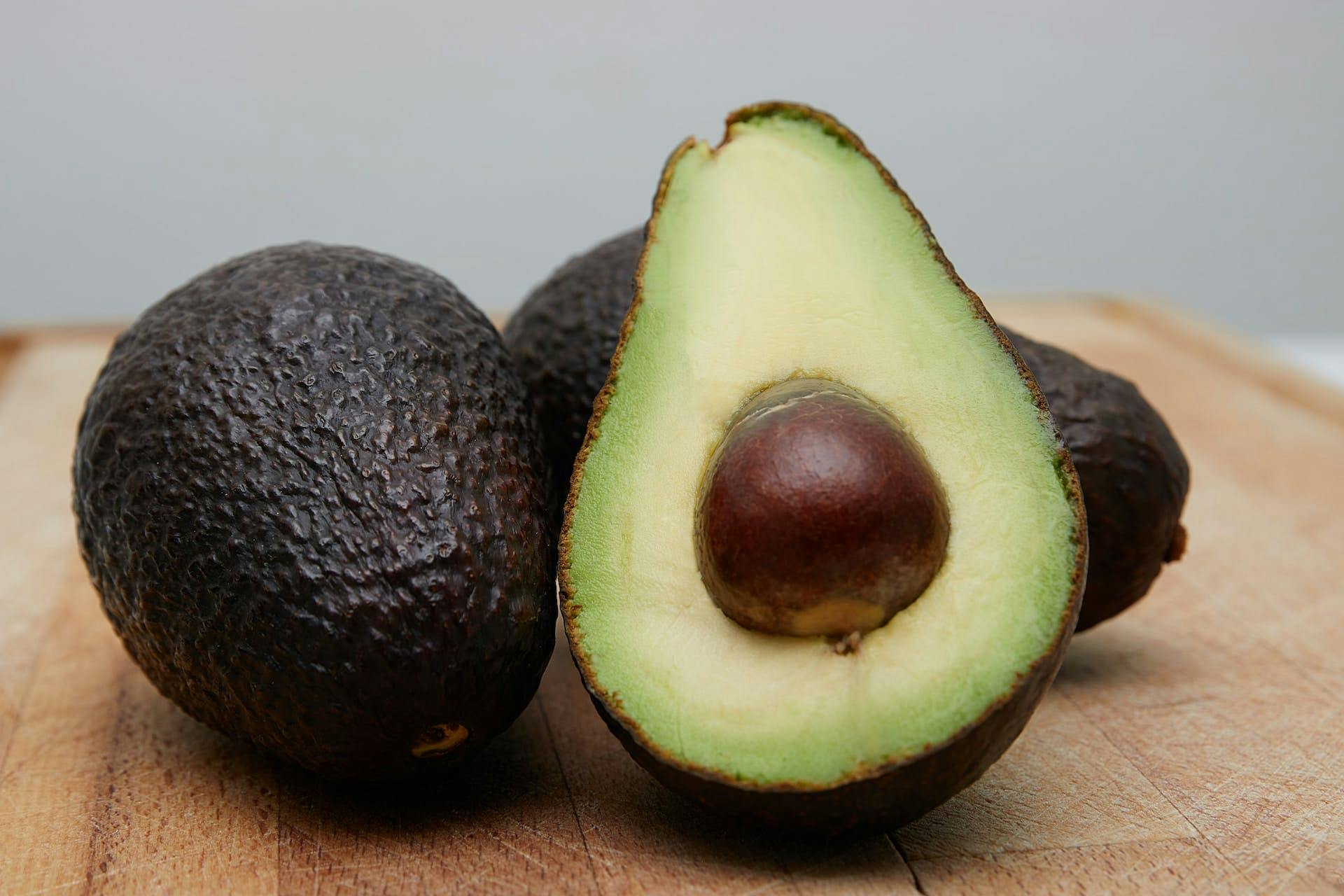It’s a common misconception that carbohydrates are bad for you and that you need to avoid carbs to lose weight. Although low-carb diets can have some positive effects in the short term, such as weight loss and glycemic control, there is limited evidence for the sustainability of these diets. Instead, prioritizing complex carbs high in fiber — like whole grains and starchy vegetables — can help you reverse insulin resistance, avoid glucose spikes, and achieve the same health effects.
What are low-carb diets?
A low-carbohydrate or low-carb diet is made up of foods high in protein and fat with limited carbohydrates [1]. Whole foods high in carbohydrates include fruits, starchy vegetables, and grains. Over the years, low-carb diets have gained popularity, and many variations have evolved such as the Keto diet, the Atkins diet, and the Whole30 diet. Overall these diets all focus on being low in carbohydrates, but they do have some differences.
- The Keto diet relies on fat for energy with 70-80% of one’s total daily macronutrient intake coming from fat, 20-25% protein, and 5-10% carbohydrates. This diet forces the body to enter a state of ketosis, where the body burns fat to produce ketones for energy, rather than glucose [2].
- The Atkins diet is similar to the keto diet with a high-fat, moderate-protein, and low-carb intake. However, unlike the keto diet, the Atkins diet slowly increases complex carbohydrate intake over time [2].
- The Whole30 diet contains fruits and vegetables, but eliminates grains and other carbohydrates for 30 days [3]. It encourages eating whole foods and reducing processed foods.
These diets claim to improve overall health and promote weight loss. However, with their restrictive nature, they are not often sustainable. While there’s limited research on the health implications over time, some long-term adverse effects may include nutrient deficiencies, digestive issues, kidney stones, muscle loss, and cognitive decline [4].
How do low-carb diets affect insulin resistance and metabolic health?
Chronic high blood sugar levels occur when the cells in the body become less sensitive to the hormone insulin, called insulin resistance. A low-carb diet can be effective in minimizing this issue as it can decrease blood sugar spikes, promote weight loss, and encourage fat metabolism. Research has evaluated these three mechanisms and the relationship between low-carb diets and cardiovascular disease (CVD).
In one study, 14 obese participants with type 2 diabetes lost an average of 9.7 kg (21.4 lbs) after 24 weeks, and significantly improved their glycemic control, fasting glucose, and HOMA-IR (i.e., a measure of insulin sensitivity) [5]. Insulin sensitivity also improved while systolic blood pressure decreased and cholesterol measurements improved, which are CVD risk measures [5].
In another study, 164 participants were randomly assigned three weight-loss maintenance diets for 20 weeks [6]. The diets contained 20% protein and varying amounts of carbohydrates and saturated fat. The low-carb, high-saturated fat diet improved insulin-resistant dyslipoproteinemia (i.e., abnormally elevated fat or cholesterol levels in the blood) without adverse effects on LDL-cholesterol (the “bad” cholesterol) or inflammation [6].
To evaluate the sustainability of low-carb diets, a 2021 review looked at the keto diet in people with type 2 diabetes [7]. The majority of the studies reviewed showed positive improvements in measures of metabolic health (i.e., HbA1c and glycemic variability). More specifically, the use of glucose-lowering medications (i.e., metformin) following the keto diet was decreased in several studies. Weight loss was shown in short-term studies (less than 6 months), but was not sustained in long-term studies. It is difficult to determine if the effect of the low-carb diet alone was responsible for the outcomes or if other lifestyle changes (i.e., physical activity, calorie restriction, health coaching support) played a role [7].
Notable, these health outcomes have been shown in participants who are obese and/or have type 2 diabetes, so we can't generalize them to the general population.
Things to consider if you’re going on a low-carb diet
Although there is promising research for the short-term benefits of following a low-carb diet, these diets can also veer into metabolically unhealthy territory if you end up eating high amounts of artificial sweeteners as sugar substitutes, saturated fats, or not enough fiber. Some things to consider if you’re going on a low-carb diet include:
1. Focus on fiber
Low-carb/keto diets often lack fiber due to the lack of carbohydrates like whole grains and fruits. Dietary fiber is a type of carbohydrate found in plant foods that your body can’t digest — and is a key player in your metabolic health as it helps keep your blood sugar levels stable, curb inflammation, and support weight loss [8]. Some low-carb, high-fiber options to add to your diet include legumes and beans, flaxseeds and chia seeds, avocados, and dark leafy greens.
2. Be mindful of saturated fat
Saturated fat is found in animal products like red meat, butter, eggs, dairy, and coconut oil. Saturated fat has previously been referred to as the “bad fat” as it has been linked to poor health outcomes like heart disease and type 2 diabetes [9-11]. However, many of these studies have looked at saturated fat alone, excluding the other parts of the whole diet. Studies consistently show that replacing saturated fat with polyunsaturated and monounsaturated fats (found in fish, olive oil, nuts, and seeds) reduces several markers and risk factors of cardiometabolic health [12-14].
3. Moderate intake of non-nutritive sweeteners (NNS)
By design, low-carb diets eliminate most sources of added sugar. Non-nutritive sweeteners or artificial sweeteners like stevia and aspartame have been populating the market. Some artificial sweeteners have been linked to glucose intolerance and an elevated glycemic response. Artificial sweeteners may also disrupt the gut microbiota and decrease insulin sensitivity. To reset your taste buds and wean off the artificial flavors, try eating more whole fruit and natural sweeteners in moderation.
4. Carb intolerance phenomenon
Low-carb diets can temporarily disrupt the body’s glucose and insulin response, increasing your sensitivity to carbs. This occurs because your body becomes more efficient at using fat as its energy source compared to carbs. If you were on a low-carb diet and then started to increase your carb intake, you may experience fatigue, digestive issues, or potentially gain some weight due to higher insulin levels. This is known as the carbohydrate intolerance phenomenon, which is a normal response as your body adapts to your dietary changes. Your metabolism is versatile and can use both fat and carbs for energy, but it will take some time to readjust if you were primarily using one over the other.
5. Sustainability
Research shows that in the short term, low-carb diets can promote weight loss and improve glycemic control, but the evidence on long-term outcomes remains unknown [15]. However, an agreed-upon research-backed conclusion is to limit highly processed carbohydrates and added sugar in the diet.
If following a low-carb diet feels good for your body and you are getting enough fiber while limiting your intake of artificial sweeteners and saturated fat, then do what works best for you. The key is to avoid a mindset where occasionally craving or eating complex carbs means you’ve “failed” at following the diet. Ultimately, the focus should be on creating healthy and sustainable lifestyle habits. Eating a whole-food diet composed of healthy fats, lean protein, complex carbohydrates, and fiber will help you achieve your health goals while keeping your blood sugar levels stable. If you find yourself craving complex carbohydrates, check out these 4 blood-sugar friendly recipes.
Key takeaways
Low-carb diets have been around for some time now as a way to lose weight. However, the research shows that this lifestyle is not sustainable for mental or physical health. Rather than restrict what’s on your plate, focus on what you can add to your plate that will help you achieve your desired health outcomes.
- A low-carb diet is high in fat and protein and low in carbohydrates. Popular low-carb diets are the Keto diet and Atkins diet, which will force your body into ketosis, (i.e., a state where your body burns fat for energy rather than glucose).
- Although a low-carb diet can help decrease insulin resistance through minimizing blood glucose spikes, promoting weight loss, and encouraging fat metabolism, these effects have not been shown or evaluated in the long-term. There is little evidence to show that a low-carb diet is beneficial or safe for long periods of time.
- If you’re considering trying a low-carb diet, be mindful of your saturated fat intake, adding artificial sweeteners, and focus on increasing your fiber.
- If you have been on a low-carb diet and you are starting to add carbs back into your diet, expect some unpleasant side effects such as fatigue and GI discomfort. This is normal as your body is readjusting to using glucose as the energy source rather than fat.
References:
- https://www.mayoclinic.org/healthy-lifestyle/weight-loss/in-depth/low-carb-diet/art-20045831
- https://www.medicalnewstoday.com/articles/326324#what-are-the-keto-and-atkins-diets
- https://www.healthline.com/nutrition/whole-30#benefits
- https://www.ncbi.nlm.nih.gov/books/NBK499830/
- https://www.tandfonline.com/doi/abs/10.1080/07315724.2013.767630?casa_token=x3KRrikhATQAAAAA:DHRRXohpnoA78Ym6gaZkOjd4wzY2XdnvqABhRjCu4YQn5q5aNqi2vh364aMgEY4D2mdC-yrHVg18
- https://www.ncbi.nlm.nih.gov/pmc/articles/PMC8755039/
- https://www.ncbi.nlm.nih.gov/pmc/articles/PMC8397683/
- https://pubmed.ncbi.nlm.nih.gov/31174214/
- https://pubmed.ncbi.nlm.nih.gov/9006469/
- https://pubmed.ncbi.nlm.nih.gov/7644455/
- https://journals.sagepub.com/doi/full/10.1177/1178646920981946
- https://www.ncbi.nlm.nih.gov/pmc/articles/PMC2843598/
- https://pubmed.ncbi.nlm.nih.gov/28448503/
- https://www.ncbi.nlm.nih.gov/pmc/articles/PMC4377837/
- https://pubmed.ncbi.nlm.nih.gov/32744579/


